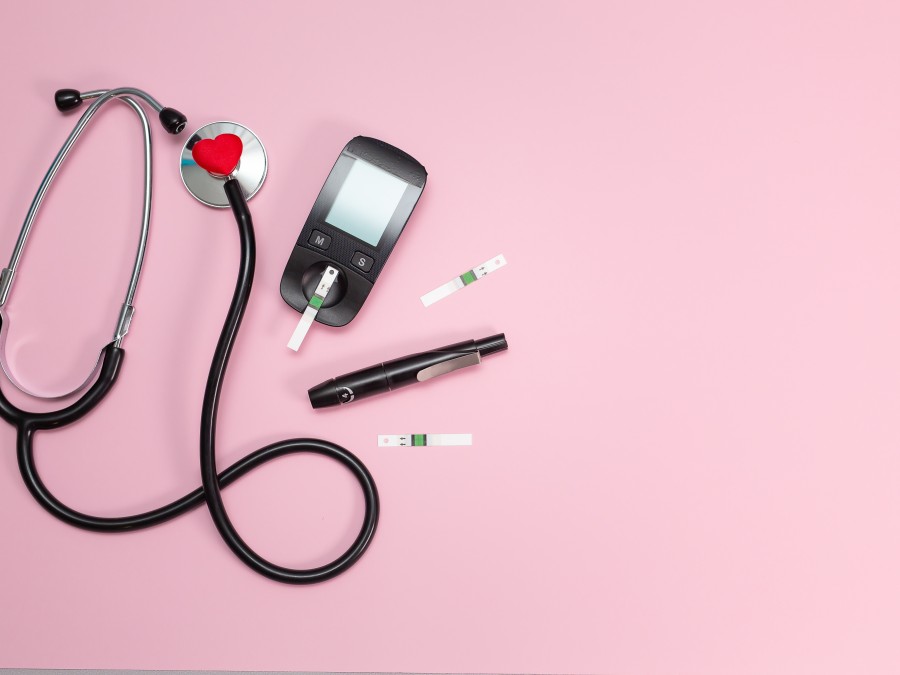How to help keep blood glucose levels on target

If you have been newly diagnosed with diabetes, you may have found that there are many new things to learn and understand. One of these will be your target blood glucose range.
This article will look at why having target blood glucose levels is important and give you some tips on how to help keep you within your target range.
Why keeping blood glucose levels within target range is so important
Keeping your blood glucose levels within a set range is very important and understanding more about diabetes will help it to become more familiar and hopefully less daunting.
If you have type 1 diabetes, you will need to use insulin to manage your blood glucose levels. A combination of insulin administration and glucose will help to avoid hypoglycaemia and hyperglycaemia. Hypoglycaemia is when your blood glucose levels are too low and hyperglycaemia is when your blood glucose levels are too high. Managing your blood glucose levels as best as you can and keeping them in range will help prevent these, as well as both short and long term complications.
7 tips for keeping your blood glucose levels in target
Below, we’ve covered some tips to help you keep your blood glucose levels in target.
1. Understand your target range
It is important to try and keep your blood glucose within your target range for as much time as possible. This can prevent or delay some of the short and long term complications of diabetes.
Target ranges vary from person to person, and can depend on a number of factors including your age and your overall health and lifestyle.
Deciding on the most suitable target range for you will be part of a conversation between you and your healthcare team.
2. Establish a testing routine

Establish a testing routine
It is important to try and have a regular routine for managing your diabetes.
How often you check your blood glucose levels will depend on a number of factors but here are some common times to check blood glucose:
- When you first wake up
- Before a meal
- Two hours after a meal
- At bedtime
Having a routine could help towards turning your diabetes management into a habit and hopefully less disruptive for your life as time goes on. Everyone has a different routine and you need to do what works best for you.
Under certain circumstances, your healthcare team may suggest that you check your blood glucose levels more regularly or at different times of the day especially if you have been having a lot of episodes of low blood glucose (hypoglycaemia).
3. Keep a log of your blood glucose levels
Checking your blood glucose level is necessary to ensure that you are giving yourself the correct insulin dose.
With the advancement of diabetes tech, it has become easier to keep track of your blood glucose levels using blood glucose meters and continuous glucose monitoring (CGM). These devices have automated the process of recording blood glucose levels and trends, carbohydrate equivalents, and insulin doses, making this data more readily available.
Knowing and understanding how your blood glucose levels change over time allows you to be fully informed, not only helping you to understand your own needs but also making it easier to discuss your needs with your healthcare team.
4. Take care of your physical health

Take care of your physical health
Adding any kind of exercise and movement into your day, can be hugely beneficial if you have type 1 diabetes.
Exercise is beneficial in a number of ways for people living with diabetes. It has been found to improve your sensitivity to insulin, reduce your risk factors for heart and blood vessel (cardiovascular) disease and improve quality of life.
Guidelines suggest that you should aim for at least 150 minutes of moderate to vigorous exercise spread over at least three days, with at least two sessions of resistance exercise per week if you can.
We understand that it takes a lot of willpower to get moving and there are a number of factors that can make it harder to get exercising.
If you are struggling to exercise as much as you would like to, it’s important to understand first of all that any movement is good movement, no matter how small. You can also discuss things with your healthcare team to see if there is a way to help you achieve your goals.
5. Look after your mental health too
Mental health can affect so many aspects of daily life and it can be a lot to handle especially when you have another health condition to manage too. It may make it harder to stick to a diabetes care plan.
If you find you are having trouble with your mental health, it’s important to understand that you are not alone and there are lots of ways that you can get support. Reach out to friends and loved ones if you can, or you can chat to your healthcare team too who can offer more resources and support.
6. Food and Drink

Food and Drink
A well-balanced diet is important for maintaining blood glucose levels and also helping your general well-being.
Learning to count or estimate the carbohydrate content of your food allows you to adjust insulin doses to keep your blood glucose within your target range. This is known as ‘carb counting’.
There are also a few other things you can do to practise balanced eating and help keep your blood glucose levels in target:
- Try to eat at regular times and avoid skipping meals if you can
- Try to drink water instead of juice or fizzy drinks, especially if you are particularly thirsty
- Be mindful of your alcohol intake
- If you fancy a sweet treat, consider a piece of fruit over a processed option
- Understanding the nutritional content of your food can be helpful, try choosing foods that are lower in saturated and trans fats, sugar and salt where possible
- Consider your food portions
- Try keeping track of your blood glucose levels to see what trends you can recognise with certain foods.
It can sometimes be hard to stay motivated and follow a balanced eating plan but eating well and understanding nutrition is an important tool for not only managing blood glucose levels but general well-being too.
The appropriate insulin plan for you can usually be refined to fit in with your preferred meal routine and favourite foods. Changes in your lifestyle can also help to incorporate your insulin regime into your preferred diet and exercise routines. Your healthcare team will be able to help you with this and there are lots of resources online to help too.
7. Learn about diabetes
Diabetes self-management can seem complicated at first but there are plenty of resources to help. It has been estimated that 95% of diabetes care is self-management.
Diabetes education from your healthcare team can help with this and is usually given when you are diagnosed and at various other points along your diabetes journey.
Managing diabetes can be a complicated process, but there are a number of simple steps you can take to start feeling in control of diabetes and help towards managing it.
Your healthcare team will be able to give you more information and support to help keep your blood glucose in target range more often. You can also find more resources online, and through social media, along with diabetes specific charities to give you advice and support too.
Sources
- Wong, J.C., Neinstein, A.B., Spindler, M., Adi, S. A Minority of Patients with Type 1 Diabetes Routinely Downloads and Retrospectively Reviews Device Data. Diabetes Technology & Therapeutics 2015; 17(8): 555-562. http://doi.org/10.1089/dia.2014.0413
- Centers for Disease Control and Prevention. Manage Blood Sugar. Accessed April 2022. Available at: https://www.cdc.gov/diabetes/managing/manage-blood-sugar.html
- Couper, J.J., Taylor, J., Fotheringham, M.J., Sawyer, M. Failure to maintain the benefits of home-based intervention in adolescents with poorly controlled type 1 diabetes. Diabetes Care 1999; 22 (12): 1933–1937. https://doi.org/10.2337/diacare.22.12.1933
- Kennedy A., Narendran P., Andrews R.C. for the EXTOD Group, et al. Attitudes and barriers to exercise in adults with a recent diagnosis of type 1 diabetes: a qualitative study of participants in the Exercise for Type 1 Diabetes (EXTOD) study. BMJ Open 2018;8:e017813.
https://doi.org/10.1136/bmjopen-2017-01781 - Centers for Disease Control and Prevention. Diabetes and Mental Health. Accessed April 2022. Available at: https://www.cdc.gov/diabetes/managing/mental-health.html
- Schwartz, D.D. Cline, V.D., Axelrad, M.E., Anderson, B.J. Feasibility, Acceptability, and Predictive Validity of a Psychosocial Screening Program for Children and Youth Newly Diagnosed With Type 1 Diabetes. Diabetes Care 2011; 34 (2): 326–331. https://doi.org/10.2337/dc10-1553
- Davison, K.A.K., Negrato, C.A., Cobas, R. et al. Relationship between adherence to diet, glycemic control and cardiovascular risk factors in patients with type 1 diabetes: a nationwide survey in Brazil. Nutr J 2014; 13: 19. https://doi.org/10.1186/1475-2891-13-19
- Wiley, J., Westbrook, M., Long, J. et al. Diabetes Education: The Experiences of Young Adults with Type 1 Diabetes. Diabetes Ther 2014; 5: 299–321. https://doi.org/10.1007/s13300-014-0056-0





